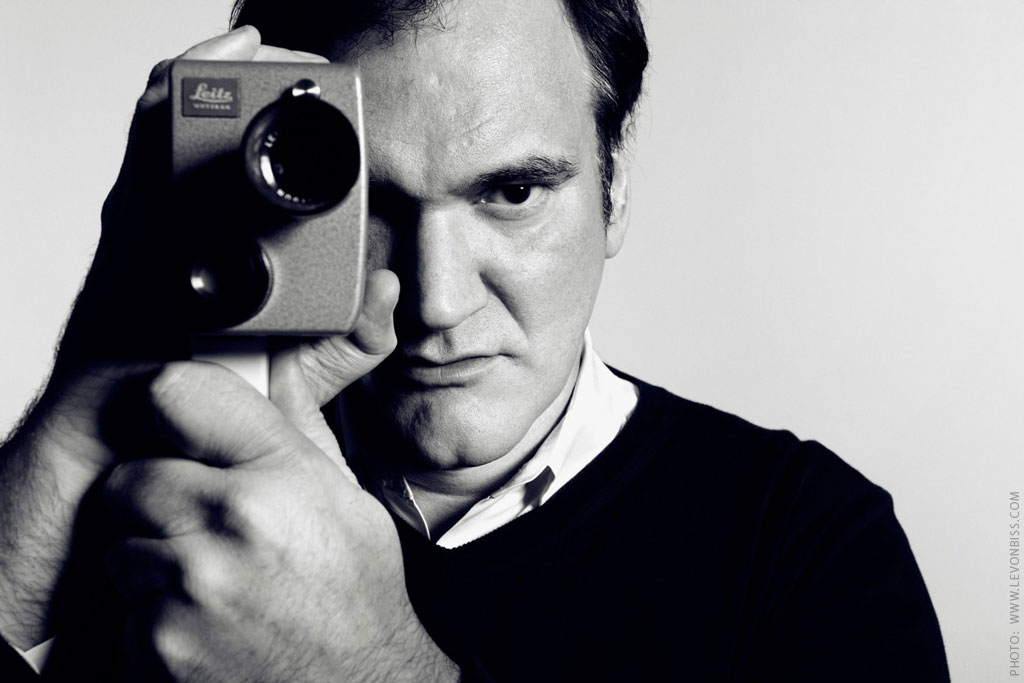Elvis Mitchell is an American film critic and host of The Treatment, KCRW's film interview program. On January 9, 2013, Mitchell interviewed renowned writer/director, and sometimes actor Quentin Tarantino. Tarantino is best known for his tremendous love of film and his very unique movies including Reservoir Dogs, Pulp Fiction, and most recently Django Unchained.
 |
| Quentin Tarantino, The Film Lover |
I actually listened to all three of Quentin Tarantino's interviews available on The Treatment, but I will base my assignment on the most recent one which took place a couple weeks after Django Unchained premiered. Although the interview was supposed to be about Django, I noticed that most of the time Tarantino would reference his previous films like Inglorious Bastards and Pulp Fiction, particularly when he and Mitchell discussed practice of using food to convey power.
"...I think I just always associated the getting to know somebody, trading back and forth information, finding out if you're compatible, anything like that always happens over restaurants and dinners.. and some of the rituals are about the balance of power shifting or being established..." Tarantino says about his effective use of food in all of his films. I find this fascinating because as Mitchell was first introducing the subject, I found myself thinking back to scenes ins Django where one of the villains is always eating, no matter what he is doing whether it be just walking around or actually sitting at the dinner table. Then as Tarantino went on to explain that he incorporates scenes where actors actually eat the food as it is shown in the movie, I thought about other movies of different genres and how it is only in restaurant or dinner table scenes that we see actors eating, or at least sitting in front of food. I admire Tarantino's desire to genuinely depict a scene, to the extent that we can walk out of watching one of his films craving the food we see his characters devouring.
 |
| Jules in Pulp Fiction, eating a Big Kahuna Burger |
 |
| Calvin Candie in Django Unchained, having a Pina Colada |
Another notable comment Quentin Tarantino made is about how he likes to be different when telling his stories, and even admits only working with actors who love language and are intelligent enough to understand his wordy scripts. He says "I hate to have like expositional sequences and so I always try to overload them with other stuff so you don't quite realize you're having the story told to you." Something I really enjoy about watching Tarantino's films is trying to keep up with the dialogue and the plot that may jump around because I become an active viewer. Also, because any sequence in any Tarantino film is always loaded with many interesting visual and auditory element, I am able to enjoy watching his movies over and over again.
 |
| Pulp Fiction 'Mexican Standoff' at the diner |
Quentin Tarantino also talks about how "there is an aspect of Inglorious Bastards.. there's a whole plethora of Holocaust movies and World War II action adventure movies that have done the work for [him] so [he doesn't] have to show all that you've seen in the other movies... [He] can just hint to that and get down to [his] deconstruction." Then he goes on to explain that for Django Unchained, he had to take the time to provide us the back story and actually give us an idea of what it was like in the South during that period of time. His comments made me wonder about how hard it must be for a director or writer to want to tell his or her story but beforehand have to decide what must be provided to the audience.
 |
| Schultz teaches Django how to be a gunfighter in Django Unchained |
Personally, I really enjoy watching Quentin Tarantino's films and look forward to his future projects. I think that through his direction and writing her created movies that originate in genres familiar to movie lovers, but transcend into works all his own. I learned a lot about some of Tarantino's movie-making process, including the lengthy auditions he casts and the long writing and creating periods it takes to produce his films. To the film world, Quentin Tarantino shares a very fresh and unique perspective other film maker's have tired, and he also gives his audience a full experience!
